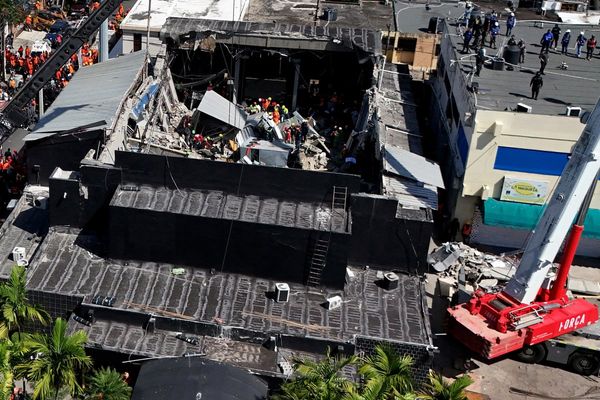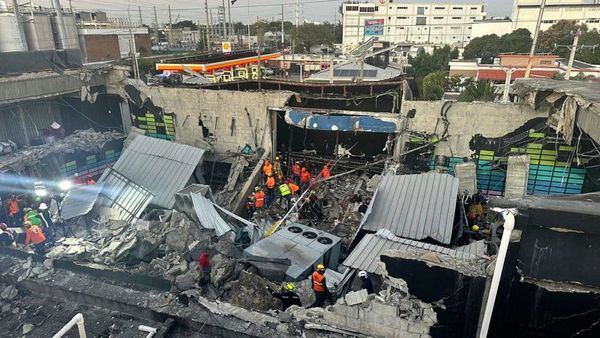An Australian woman suffered a spinal injury and has no sensation from her waist down after her flight to Singapore hit extreme turbulence earlier this week, as others onboard are treated for skull and brain injuries.
The Boeing 777-300ER hit what an airline official described as “sudden extreme turbulence” over Myanmar, sending passengers and crew flying and slamming some into the ceiling. The flight, SQ321 from London to Singapore on Tuesday, made an emergency diversion to Bangkok.
A 73-year-old British man died during the incident – possibly from a heart attack.
Of the 211 passengers and 18 crew onboard, 104 people were injured. Some were treated for minor injuries and continued their travels. About 79 remained in Bangkok on Thursday, with most still in hospital, 41 of those at the Samitivej Srinakarin.
Australia’s Department of Foreign Affairs and Trade said on Thursday more than 50 Australians were on the flight, with 12 citizens and one permanent resident remaining in hospital. Three Australians were being treated in an intensive care unit.
Australian man Keith Davis, who was on board the flight with his wife Kerry, said she has a severe spinal injury. The pair remain in a Bangkok hospital.
Davis – talking to Channel 9 on Friday morning from his hospital bed with visible facial injuries and a bandage around his head – said he looked “a lot worse” than he was, with “pretty superficial lacerations and a hell of a lot of swelling and bruising”.
But his wife was in a much worse condition.
“She’s had a severe spinal injury … and she has no sensation from her waist down,” Davis said.
“You just don’t expect this. We’ve had a fantastic holiday in the UK [and] we’re, you know, one more flight away, nearly home. And this comes along. I mean, these things happen. But who expects this?”
Davis said the aim was to get his wife into a stable enough condition so she was fit to fly back to Australia in a medical evacuation.
“She’s been conscious all the way through, which is a blessing. She’s never lost consciousness, you know, she doesn’t have a brain injury [and] she’s got all of her wits about her. She’s strong and we just want to get home,” Davis said.
Davis told the ABC it was not accurate to label the incident “a spot of turbulence” because in an “absolute instant [they were] on the ceiling”.
“We’re talking literally seconds – there’s no announcement, we did not see any indication at all, we just fell into a huge hole and we’re free-falling,” he said.
“[We went] straight up into the ceiling, I went headfirst. We were in the middle section so I was dead centre and I went up through all the vents and masks and things.”
“Unfortunately for Kerry she hit the luggage doors and instead of landing back into the seat area, she fell flat straight into the aisle and from that moment, she didn’t move. That’s where she remained for the rest of the flight. It was really horrifying.”
Davis recounted checking to see that she was breathing and could communicate:
“It was pretty horrifying but there was so much else going on and unfortunately the gentleman who passed away was immediately in front of us [and] the young gentleman who was sitting next to me [was] applying CPR instantly,” Davis said.
Adinun Kittiratanapaibool, director of Bangkok’s Samitivej Srinakarin hospital, said his staff were treating six people for skull and brain injuries, 22 for spinal injuries, and 13 for bone, muscle and other injuries.
“We have never treated people with these kinds of injuries caused by turbulence,” he told reporters.
Seventeen surgeries have already been performed — nine spinal surgeries and eight for other injuries, he said.
Asked about the prognosis for the most serious cases, Kittiratanapaibool said it was too early to tell if any could suffer permanent paralysis and doctors would have to observe whether muscle function recovered after surgery. He said that none of the 20 patients in ICU were in a life-threatening condition.
The injured at the hospital range in age from two to 83, he added.
With agencies







